- 0086-571-85302990
- sales@greenskybio.com
Best Answers to 7 Key Questions about Natural Grape Seed Extract.
2024-12-11

1. What is Natural Grape Seed Extract?
Natural Grape Seed Extract is a substance derived from the seeds of grapes (Vitis vinifera). It is rich in various bioactive compounds, most notably proanthocyanidins, which are a type of flavonoid. These compounds are responsible for many of the potential health benefits associated with Grape Seed Extract.
The extraction process typically involves crushing the grape seeds and then using solvents or other techniques to isolate the desired components. The resulting extract is a concentrated form of these beneficial substances, which can be used in a variety of applications, including dietary supplements, cosmetics, and pharmaceuticals.
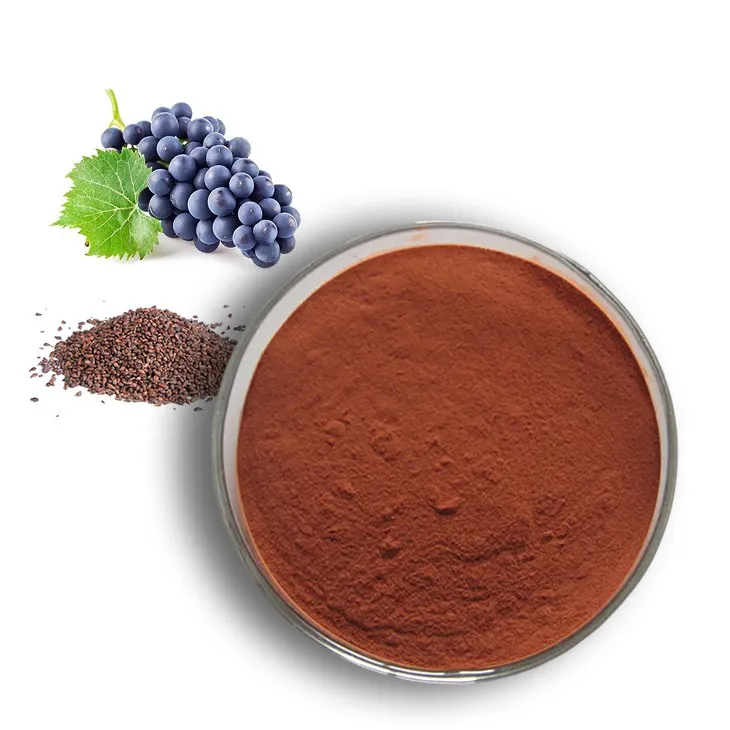
2. What are the Main Sources of Grape Seeds for Extract?
- Wine - making Industry: One of the primary sources of grape seeds for extraction is the wine - making industry. During the production of wine, grapes are crushed, and the juice is separated from the seeds, skins, and stems. The seeds, which are often considered a by - product in wine - making, are then collected and can be used for extract production.
- Table Grape Production: Table grapes also provide a source of seeds for extraction. When table grapes are processed, for example, for making grape juice or other grape - based products, the seeds can be recovered and used to obtain grape seed extract.
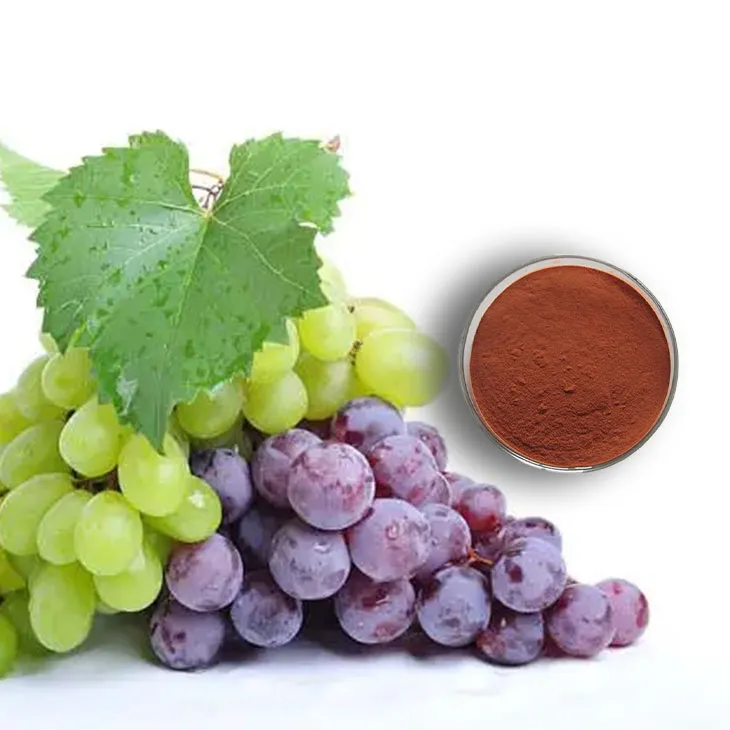
3. What are the Potential Health Benefits of Natural grape seed extract?
3.1 Antioxidant Properties
Grape seed extract is renowned for its strong antioxidant properties. Antioxidants play a crucial role in protecting the body against oxidative stress, which is caused by an imbalance between free radicals and the body's antioxidant defenses. Free radicals are unstable molecules that can damage cells, DNA, and proteins in the body. Proanthocyanidins in grape seed extract can scavenge these free radicals, thereby reducing the risk of various diseases associated with oxidative stress, such as heart disease, cancer, and neurodegenerative disorders.
3.2 Cardiovascular Health
- It may help in reducing blood pressure. Some studies have shown that grape seed extract can relax blood vessels, leading to a decrease in blood pressure levels. This effect is beneficial for individuals at risk of hypertension.
- Another aspect related to cardiovascular health is its potential to improve cholesterol levels. Grape seed extract may help in reducing LDL (low - density lipoprotein) cholesterol, also known as "bad" cholesterol, while increasing HDL (high - density lipoprotein) cholesterol, or "good" cholesterol. This can contribute to a healthier lipid profile and reduce the risk of atherosclerosis.
3.3 Skin Health
- Due to its antioxidant properties, grape seed extract can protect the skin from damage caused by UV radiation. It helps in reducing the formation of wrinkles and fine lines, promoting a more youthful appearance.
- It also has anti - inflammatory properties that can be beneficial for various skin conditions, such as acne, eczema, and psoriasis. By reducing inflammation in the skin, it can help in soothing irritated skin and promoting skin healing.
3.4 Anti - Inflammatory Effects
Beyond skin health, the anti - inflammatory effects of grape seed extract are beneficial throughout the body. Chronic inflammation is associated with many diseases, including arthritis, diabetes, and certain cancers. By reducing inflammation, grape seed extract may play a role in preventing or managing these conditions.
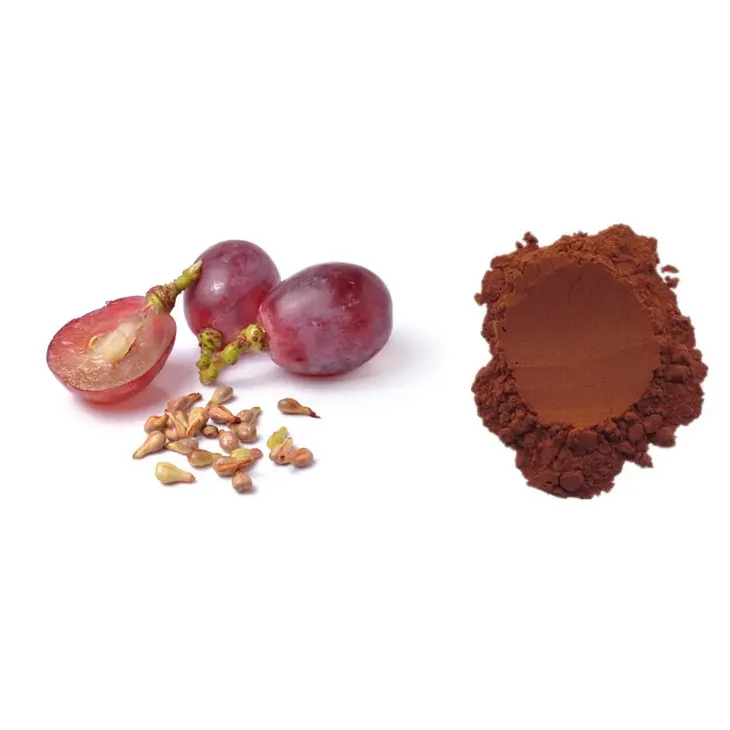
4. How is Natural grape seed extract Used?
4.1 Dietary Supplements
One of the most common ways to use grape seed extract is in the form of dietary supplements. These supplements are available in various forms, such as capsules, tablets, and powders. They are typically standardized to contain a certain percentage of proanthocyanidins. The recommended dosage can vary depending on the intended use and individual factors, but generally, doses range from 50 - 300 mg per day.
4.2 Cosmetics
- In cosmetics, grape seed extract is used in a wide range of products, including creams, lotions, serums, and masks. It is added to these products for its antioxidant and anti - inflammatory properties, which can help in protecting and improving the skin's condition.
- For example, in anti - aging creams, it can work to reduce the signs of aging, such as wrinkles and sagging skin. In products for sensitive skin, it can help in reducing inflammation and redness.
4.3 Food and Beverage Applications
Although not as common as in supplements and cosmetics, grape seed extract can also be used in food and beverage applications. It can be added to juices, smoothies, and other beverages as a natural antioxidant. In some cases, it may also be used in food products to enhance their nutritional value and shelf - life.
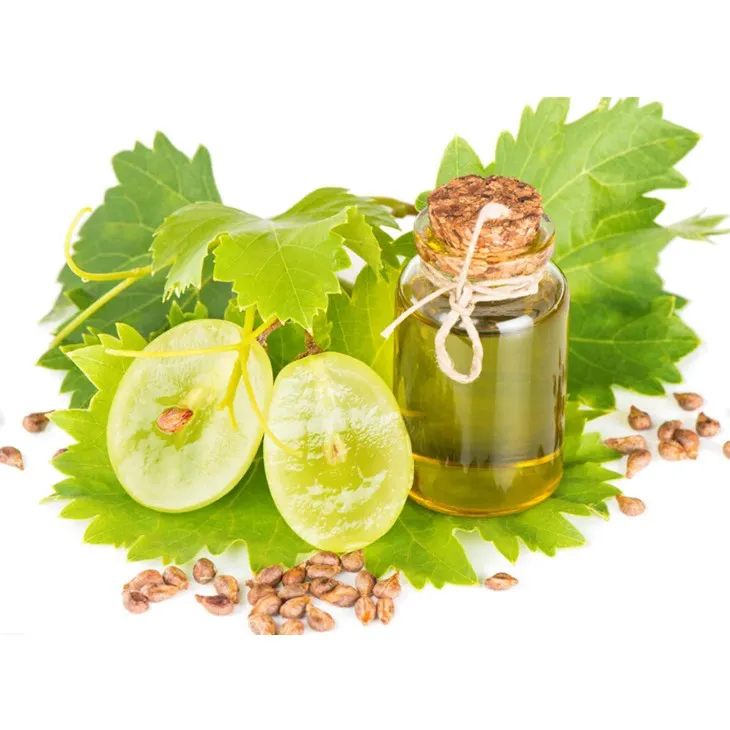
5. Are There Any Side Effects or Precautions?
- For most people, grape seed extract is generally safe when taken in recommended doses. However, some individuals may experience mild side effects, such as headache, dizziness, or nausea. These side effects are usually rare and tend to be mild and transient.
- It is important to note that grape seed extract may interact with certain medications. For example, it may enhance the blood - thinning effects of anticoagulant medications, such as warfarin. Therefore, individuals taking such medications should consult their healthcare provider before using grape seed extract.
- Pregnant and breastfeeding women should also exercise caution when considering the use of grape seed extract. Although there is limited evidence of harm, it is advisable to consult a doctor before using any supplements during pregnancy or while breastfeeding.
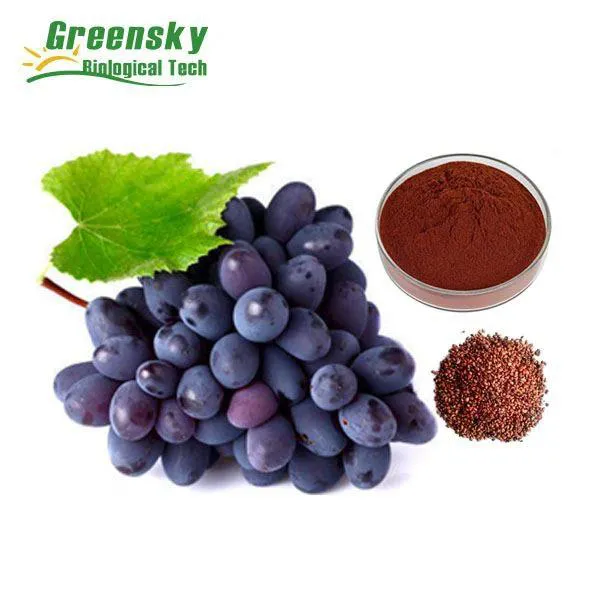
6. How to Choose a High - Quality Grape Seed Extract Product?
- Standardization: Look for products that are standardized to a certain percentage of proanthocyanidins. This ensures that you are getting a consistent amount of the active ingredient in each dose.
- Source and Purity: Check the source of the grape seeds used in the extract. Ideally, the product should come from high - quality grape sources. Also, ensure that the product is free from contaminants, such as pesticides, heavy metals, and other impurities.
- Brand Reputation: Choose products from well - known and reputable brands. Read customer reviews and look for products that have been tested for quality and safety.
7. What is the Future Outlook for Natural grape seed extract?
- The future of natural grape seed extract looks promising. As research continues to uncover its potential health benefits, its use in various industries is likely to increase. In the field of healthcare, more studies are expected to explore its role in preventing and treating chronic diseases.
- In the cosmetics industry, there is a growing trend towards using natural ingredients, and grape seed extract is well - positioned to meet this demand. Its antioxidant and anti - inflammatory properties make it an attractive ingredient for developing new skin - care products.
- However, challenges such as ensuring the sustainable sourcing of grape seeds and maintaining product quality standards will need to be addressed as the market for grape seed extract expands.
FAQ:
Question 1: What are the main health benefits of natural grape seed extract?
Natural grape seed extract is rich in antioxidants, particularly proanthocyanidins. These antioxidants can help protect the body's cells from damage caused by free radicals. It may also support cardiovascular health by promoting healthy blood vessels, reducing inflammation, and potentially improving blood lipid profiles. Additionally, it has been associated with skin health, as it may help protect the skin from UV damage and promote collagen production, which can contribute to more youthful - looking skin.
Question 2: Where does natural grape seed extract come from?
As the name implies, it comes from grape seeds. Grape seeds are a by - product of the winemaking process. After grapes are pressed for juice in winemaking, the seeds are separated and then processed to extract the beneficial compounds. It can also be obtained from grape - related products such as grape seed oil production.
Question 3: How is natural grape seed extract used?
It is available in various forms for different uses. One common form is in dietary supplements, which can be taken orally in the form of capsules or tablets. Some people also use grape seed extract in topical products for skin care, such as creams and lotions. In cooking, grape seed oil, which contains some of the beneficial components, can be used for frying, baking, or as a salad dressing ingredient.
Question 4: Are there any side effects of using natural grape seed extract?
In general, when used as directed, natural grape seed extract is considered safe for most people. However, some individuals may experience mild side effects such as stomach upset, headache, or dizziness. It may also interact with certain medications, especially blood - thinning medications, so it's important to consult a healthcare provider before starting to use it, especially if you are taking other medications or have underlying health conditions.
Question 5: How much natural grape seed extract should be taken?
The appropriate dosage can vary depending on factors such as the individual's age, health status, and the intended use. In the case of dietary supplements, a typical recommended dose may range from 50 - 300 milligrams per day. However, it's crucial to follow the instructions on the product label or consult a healthcare professional for personalized advice.
Question 6: Can natural grape seed extract be used for skin anti - aging?
Yes, it has potential for skin anti - aging. The antioxidants in grape seed extract can help combat oxidative stress on the skin, which is one of the main causes of skin aging. It may also promote collagen and elastin synthesis, which are important for maintaining skin firmness and elasticity. Regular use in topical products or through dietary intake may contribute to a more youthful appearance of the skin over time.
Related literature
- The Health Benefits of Grape Seed Extract: A Review"
- "Grape Seed Extract: Sources, Composition, and Therapeutic Applications"
- "Natural Antioxidants from Grape Seeds: Properties and Potential Applications in Cosmetics"
- ▶ Hesperidin
- ▶ citrus bioflavonoids
- ▶ plant extract
- ▶ lycopene
- ▶ Diosmin
- ▶ Grape seed extract
- ▶ Sea buckthorn Juice Powder
- ▶ Beetroot powder
- ▶ Hops Extract
- ▶ Artichoke Extract
- ▶ Reishi mushroom extract
- ▶ Astaxanthin
- ▶ Green Tea Extract
- ▶ Curcumin Extract
- ▶ Horse Chestnut Extract
- ▶ Other Problems
- ▶ Boswellia Serrata Extract
- ▶ Resveratrol Extract
- ▶ Marigold Extract
- ▶ Grape Leaf Extract
- ▶ blog3
- ▶ blog4
- ▶ blog5
-
Pure 85% Tomentil Extract.
2024-12-11
-
Withania Somnifera Extract
2024-12-11
-
Tinospora cordifolia extract
2024-12-11
-
Acerola Extract
2024-12-11
-
Clove Powder
2024-12-11
-
Cassia Seed Extract
2024-12-11
-
Rosemary extract
2024-12-11
-
Lemon Balm Extract
2024-12-11
-
Oat Straw Extract Powder
2024-12-11
-
Jujube Extract
2024-12-11
-
Nutmeg Extract
2024-12-11





















